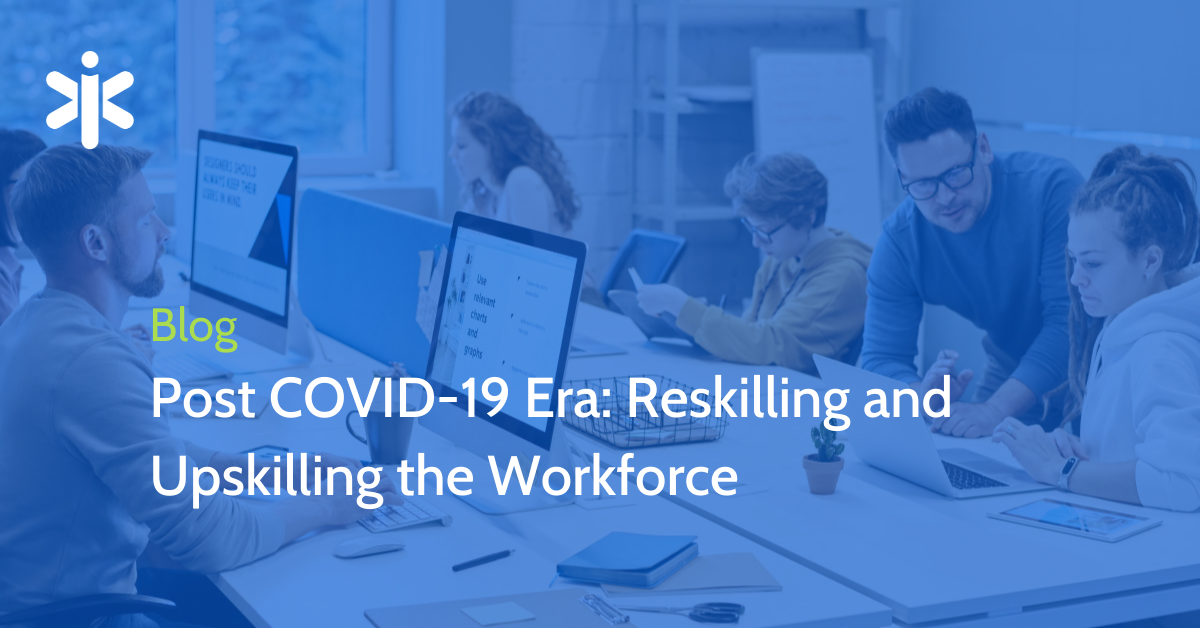With the rapid growth in AI and automation in the workplace, the threat of replacing some jobs has become real. The McKinsey Global Institute has estimated that as many as 375 million workers—or 14 percent of the global workforce—would have to switch occupations or acquire new skills by 2030 because of automation and artificial intelligence. Following the pandemic’s transformative impact on where and how we work, the uncertain future is at the forefront of many leaders’ minds. Amid the COVID-19 crisis, organizations accelerated the transition to remote work and restructuring of organizations, highlighting skill gaps and underscoring the need for a resilient workforce that can stay ahead of the curve. Rapidly evolving markets and further innovations mean that organizations must prioritize the reskilling and upskilling of their workforce.
A Hybrid Workplace
Though the shift to remote work may have seemed like it occurred overnight, roughly 1 in 20 full-time employees were already working primarily from home prior to the coronavirus outbreak. In the new normal, it’s likely that hybrid models of remote/office work are here to stay. Offsetting the benefits of greater flexibility and reduced overhead costs, relationship building in this hybrid setting will be a challenge for organizations. Consequently, interpersonal communication skills will be a critical skill for the future of work. In a flexible work environment, deliberate communication is fundamental to creating and maintaining personal connections across teams. Companies should invest in interpersonal communication skill training and provide opportunities for employees to further develop these skills.
High Demand Skills: Interpersonal and Technical
In addition to interpersonal communication skills, the future workforce will need different technical skills, as well as digital and cognitive capabilities. Considering the adoption of artificial intelligence and automation in the workplace, digital literacy and learning will be foundational skills that will help employees thrive. In a digital environment, digital capabilities add value to organizations. Digital capabilities not only help employees work in a remote setting, but also help employees understand the impact of technologies on their industry and furthers their critical thinking skills. Among digital literacy and learning, cognitive flexibility will enable employees to adjust to challenges and opportunities in the post-pandemic era.
The Evolving Role of the Middle Manager
In the COVID-19 pandemic, middle management’s role in organizations have drastically changed. As companies transition to a hybrid model, the traditional responsibilities of a middle manager – monitoring productivity, moving information across teams, and optimizing individual performance have become automated. Direct communications through Slack, Zoom, Team and other collaboration platforms has overhauled conventional, hierarchical layers of organizations. However, middle managers still have a critical role to play – they play a critical role in developing individual team members. There is a significant return when managers spend much of their time coaching and leading. By fostering talent and professional development, middle managers have an opportunity to support organizational initiatives by guiding workers as they shift into new and different roles.
Because your people already know your products, services, customers and culture, they have the foundational skills needed for the future of your workplace. Organizations should consider investing in more coaching and training their employees to thrive in future markets with new technology. In our next blog, we discuss several coaching opportunities in different areas of business.
